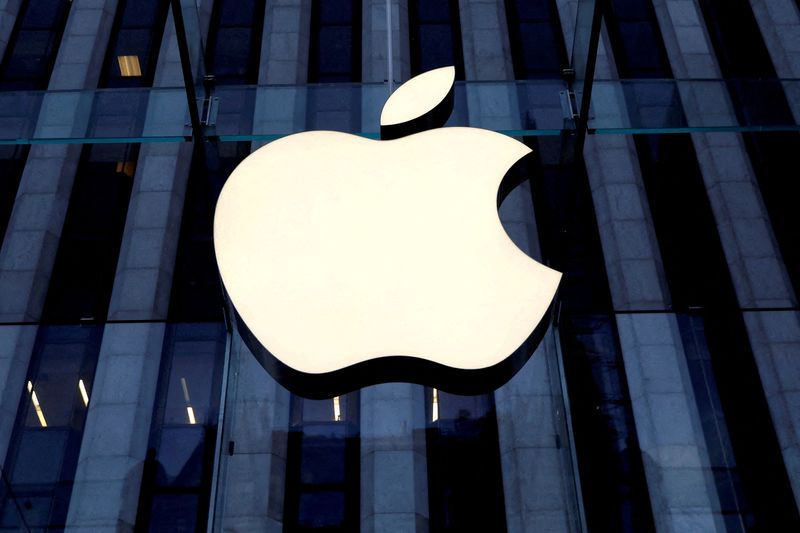[ad_1]

© Reuters. FILE PHOTO: The Apple Inc. logo is seen hanging at the entrance to the Apple store on 5th Avenue in Manhattan, New York, U.S., October 16, 2019. REUTERS/Mike Segar/File Photo
(Corrects headline and paragraphs 1,2,3 to number of units sold, not value of sales)
By Yelin Mo and Brenda Goh
BEIJING (Reuters) -Apple saw a decline in the number of smartphones sold during China’s recent Singles Day shopping festival, data from Counterpoint Research showed, lagging domestic rivals Huawei and Xiaomi (OTC:) which recorded robust increases.
The number of Apple (NASDAQ:) smartphones sold declined 4% year-on-year during the two-week sales from Oct.r 30 to Nov. 12, the research consultancy said on Thursday. In comparison, the number of units sold by Huawei and Xiaomi grew 66% and 28% respectively year-on-year over the same period.
The increases for Huawei and Xiaomi helped fuel a 5% year-over-year rise in the overall number of Chinese smartphones sold during the promotion period, it said.
The price for Apple’s latest iPhone 15 model starts at 5,999 yuan ($832), while Huawei’s Mate 60 smartphones start from 5,499 yuan ($763). Xiaomi’s latest Mi 14 smartphone is priced from 3,999 yuan ($555).
Huawei, Apple and Xiaomi did not immediately respond to requests for comment.
China’s e-commerce platforms such as Alibaba (NYSE:) and JD (NASDAQ:).com did not release sales figures for the Singles Day festival, having dropped the practice last year, although JD.com said the value of transaction volume of Apple products surpassed 10 billion yuan ($1.39 billion) on its platform during the period.
Analysts have said the Chinese smartphone market is poised to rebound, with research firm IDC saying it expects sales to grow year-on-year in the fourth quarter after ten consecutive quarters of falling shipments.
Competition between smartphone models ratcheted up before the annual shopping gala, with major Chinese e-commerce platforms offering significant discounts on Apple’s iPhones during the sales period.
Apple released its iPhone 15 series in late September, roughly a month after Huawei launched the Mate 60 smartphone line powered by Huawei’s independently developed advanced chip.
The Mate 60 series has received significant patriotic support in China with fans saying it shows how Huawei has managed to overcome years of export controls by the United States that initially crippled its smartphone business.
Xiaomi launched its flagship Mi 14 smartphone series in late October, with CEO Lei Jun revealing that sales for the new line had surpassed 1 million units after its release.
In addition to facing competition from domestic rivals, Counterpoint analysts attributed Apple’s sluggish performance to supply chain issues that have constrained the availability of its new iPhone 15 models.
“Apple is improving compared to last month but there still seems to be hiccups in terms of supply,” said Ivan Lam, senior analyst for manufacturing at Counterpoint, adding that he expects the situation to normalize soon.
($1 = 7.2111 renminbi)
[ad_2]
Source link
(This article is generated through the syndicated feed sources, Financetin doesn’t own any part of this article)
